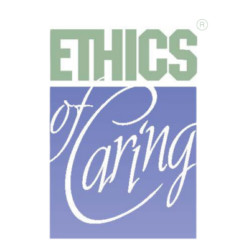“How can you be a moral agent if you are silenced? Nurses can’t fulfill the role if what they are saying isn’t taken seriously. We must have the confidence to say, ‘I have a seat at the table.'”

Dr. Beth Epstein, a nurse ethicist, is internationally recognized for her work on tools to measure moral distress and hospital ethical climate. On Friday, March 18th Dr. Epstein will present with Dr. Olsen the plenary entitled “Where You Work Determines How You Work: Ethical Climate and its Influence on Healthcare Provider Life and Practice.”
Click to Share this YEAR Spotlight!
Q:
The theme of this year’s National Nursing Ethics Conference is Moral Agents in Action. In what ways does this theme resonate with you?
One concern is that nurses’ voices aren’t always heard or taken seriously. How can you be a moral agent if you are silenced? Nurses can’t fulfill the role if what they are saying isn’t taken seriously. We must have the confidence to say, “I have a seat at the table.” This presentation will put together ways for nurses to recognize their own voice and take a stand on things they feel morally obligated to do.
– Beth Epstein
Q:
Your session will consider concepts of mattering, moral distress, burnout, and the linkages of those with ethical climate. What part of this content are you most excited about sharing with participants who may struggle with feeling like they can exert moral agency in their work environments?
As clinicians, we want meaningful work and it’s easy to say that what we do has meaning. But many people tell me they feel like they are an ‘oxygen exchange unit’ and can be replaced easily and they don’t matter to their peers. For many, the impression of how much you matter comes from your organization, whether it takes you seriously, sees you as an expert clinician, invites you to the table, and listens when you speak. Then you feel like you are embedded into the moral community and you matter. Then you will be invested in that organization and practice at your best professional capacity.
– Beth Epstein
Q:
We know from the Code of Ethics that nurses carry responsibility for the development of an ethical work environment. That seems like a big job, how does ethical climate relate to individual nurses?
The ways we interact with each other set a tone for the climate. There are things you can do locally on your unit: debriefings after deaths, celebrations of successes, community building, and bringing people together. Even the language we use makes a difference, like how you ask a physician when you are concerned about a patient— “Help me understand” or “Help me get on the same page.” What is the nurse’s responsibility in terms of creating professionalism so we can all learn from these things? Questions should come up and should be welcomed. A nurse saying “I’m afraid I’m not seeing what you’re seeing” should be viewed as valuable and clinicians should say “help me see what you are seeing”
– Beth Epstein
Q:
How would you advise nurses who have an interest in ethics?
I would say to nurses who have an interest in ethics, “Your role is more important than you may see it.” When nurses participate in solving ethical issues, it helps them feel like they have made a difference, that they have practiced to their full potential. Clinical technical expertise is one thing, but ethical problems can be real ‘zingers’ for people. I would constantly encourage nurses and nursing students to not back away from the discussion table when those issues come up. If you have something to say, you need to bring it up, don’t go home with regret.
